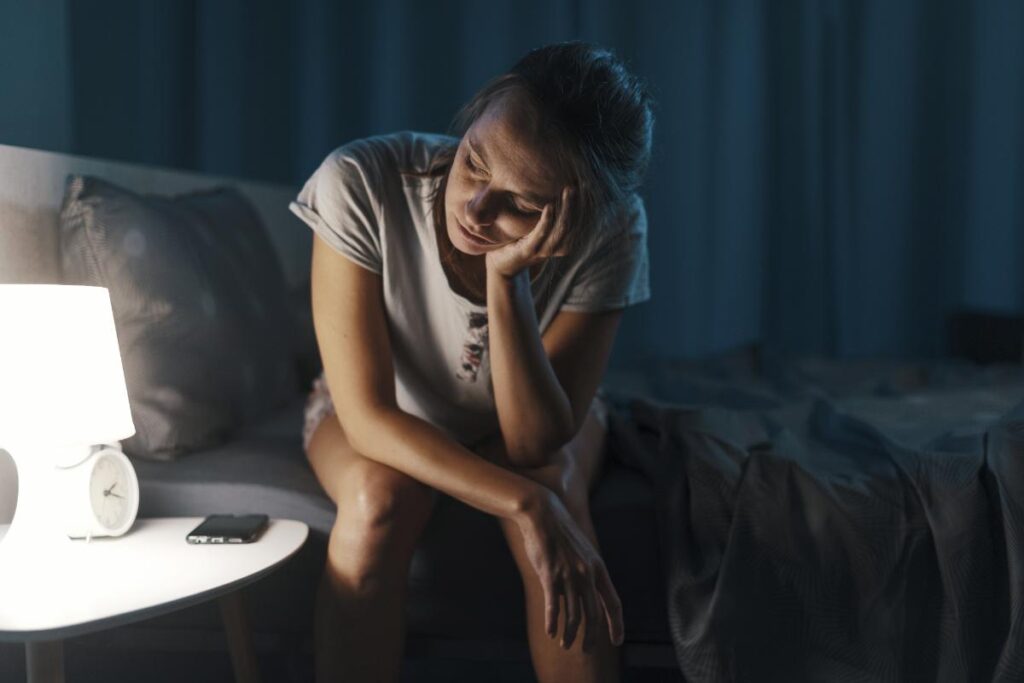What is crippling anxiety, and what does crippling anxiety feel like? It causes significant physical and mental distress and interrupts a person’s daily activities. Ultimately, it decreases their quality of life. Treatment can help, but a person struggling with severe anxiety must receive help from a residential anxiety treatment center as soon as possible.
The persistent worry and fear that characterize crippling anxiety can cause physical symptoms and accompany other mental concerns like depression. It’s not always easy to see how to help someone with crippling anxiety. However, if you or someone you love may need treatment, contact Promises Behavioral Health by calling 844.875.5609.
What Is Crippling Anxiety?
Crippling anxiety is a severe form of anxiety that interferes with a person’s ability to function daily. This mental condition can interfere with a person’s school and work. It can damage relationships and lead to substance use disorders and severe mental health problems.
A person with crippling anxiety can suffer from sleep disturbances and frequent irritability. They may develop unwarranted trust issues and lash out at others. They have trouble controlling worry and often appear nervous and frazzled.
What Causes Crippling Anxiety?
The exact cause of crippling anxiety is unknown, but it is thought to be caused by environmental and genetic factors. While it can affect people of all ages, it is most common in adults. A person can develop anxiety because of genetics, brain chemistry, medical conditions, substance use, or life experiences.
Everyone experiences varying degrees of anxiety during their lifetime. However, when anxiety interrupts daily life and prevents a person from performing everyday tasks, they must seek professional help.
Many people describe crippling anxiety as persistent worry and fear disproportionate to the situation. People may withdraw from social situations in an attempt to avoid stressful scenarios. They may become depressed and lonely, which can exacerbate anxiety further.
What Does Crippling Anxiety Feel Like?
This type of anxiety is often characterized by physical symptoms that go along with emotional ones. A person with crippling anxiety may feel constantly keyed up and restless and have difficulty concentrating on tasks. They may also have trouble sleeping and feel easily fatigued and on edge.
People who suffer from crippling anxiety can also suffer from various physical symptoms. These can include:
- Shortness of breath
- A racing heart
- Dizziness
- Quick, shallow breathing
- Profuse sweating
- Lightheadedness
- Muscle tension
In addition, they may suffer from panic attacks. Panic attacks are sudden episodes of intense fear that cause severe reactions when only ordinary, non-threatening situations are present.
How to Help Someone with Crippling Anxiety
Helping a person seek help from a treatment center is paramount. There are also many other ways to help someone with this form of anxiety.
Be supportive and understanding, and let the person know they are not alone. Be patient with them, and encourage them to seek professional help. Professional treatment is designed to teach people coping mechanisms and strategies to manage their feelings and anxiety.
Encourage them to practice relaxation techniques, and if you can, do the techniques with them. These can include deep breathing exercises and meditation, for example.
Help them stay positive and hopeful as you work together to identify their triggers. Once triggers are identified, the person can develop plans for avoiding or coping with them.
Seek Treatment for Crippling Anxiety with Promises Behavioral Health
A personalized treatment plan must be devised and followed for anyone battling crippling anxiety. With an effective anxiety treatment program, clients can regain control of their lives and anxiety. If you know someone who needs treatment for crippling anxiety or any type of anxiety-related condition, contact Promises today at 844.875.5609.

